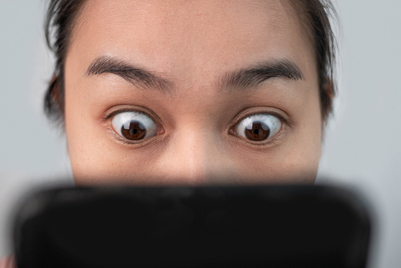
KOREA'S TOP 100 BRANDS
Samsung, LG, Chanel and Apple remained frozen in South Korea’s top four places this year. The two domestic technology giants both benefit from a deep reserve of national pride (as well as wielding political influence to a degree rarely seen elsewhere) but seem fixed in their pecking order: both continue to make incremental innovation to their product lineups without doing anything truly unexpected, and as long as this continues it’s almost impossible to imagine them trading places. At the same time, Apple has a slim chance to move forward.
Despite its popularity, Apple, which opened its first South Korean store only last year, has always been a relative outsider in a country that is sometimes referred to as the “Republic of Samsung”. But the brand has faced its own accusations of anti-competitive behaviour, which it moved to settle with regulators in the summer. Observers have suggested that the brand could now benefit from the trade war between South Korea and Japan due to disruption that Samsung is likely to face to its supply chain.
Apple could probably make more effort to tailor its communications to the market, and is showing signs that this could be a strategy for the future. An advert launched at the end of August presented the various ways in which local consumers have customised their AirPod cases. A number of examples featured are reportedly not available through Apple, which suggests a lighter touch than usual for the brand. Globally, Apple continues to be accused of losing its edge in terms of innovation, so it will be interesting to see whether the brand finds a way to take a bigger share of a market with such deep-rooted local competition.
Last year also marked the debut of Chanel’s standalone flagship store (not limited to cosmetics) in Seoul. The brand is a perennial favourite among luxury consumers but, while it avoided the controversies that seemed to dog other high-end brands such as Dolce & Gabbana over the last 12 months, it did generate some unwanted publicity by selling an apparently used handbag at full price. Even this minor blunder sparked boycott calls for “looking down on” local consumers, underscoring the level of scrutiny that high-end brands are under in the market and the pressure to deliver on expectations.
Lotte, the food, retail and hospitality giant, moved up a place to fifth, displacing the domestic internet company Naver, which slipped to 10th. As seems to be standard for South Korean conglomerates, scandal has not been far away. A few months after its 95-year-old founder was jailed for embezzlement, Lotte’s chairman was also sent to prison for bribery. While these incidents do try the patience of the public, as Lotte’s gain shows, anger rarely seems to manifest itself in punishment at a consumer level where domestic brands are concerned.
An exception might be Korean Air, which still seems to be feeling the effects of ‘nut rage’, a saga that remains fresh in people’s minds nearly five years since it began thanks to satirisation in popular culture and continued incidents involving members of the family that owns the company. In December, the company was forced to pay $18,000 to the flight attendant who suffered abuse at the hands of then vice-president Heather Cho. To top the year off, the head of the company, Cho Yang-ho, was charged with embezzling around $18 million. He was ousted from the board and died this year. The brand sunk from 38 to 54.
Looking ahead to next year, South Korea’s ranking may hold a cautionary tale for sponsors of Tokyo 2020. As one of the lead sponsors of the Pyeong Chang 2018 Winter Games, Visa did benefit from its exposure last year, but has since fallen 18 places to 45. It is difficult to attribute the slump to particular individual factors, but sponsors would do well to remember that ongoing effort is needed to sustain any momentum built up around a major sporting event.
In terms of next year’s ranking, Netflix looks like a brand to watch. The OTT entertainment service leapt 80 places to sit just outside the top 100. The company has taken an aggressive stance to the market, lowering its subscription prices in April to just under $6. It is targeting a subscriber base of around 4 million by next year. Like other US tech firms though, it does face stiff competition from traditional local companies such as SK Telecom and CJ E&M, which rejected partnership entreaties. Others such as LG have been more accommodating, and with sides being drawn, rivalry in the entertainment sector looks certain to intensify.



.jpg&h=334&w=500&q=100&v=20250320&c=1)

.jpg&h=334&w=500&q=100&v=20250320&c=1)

.jpg&h=334&w=500&q=100&v=20250320&c=1)



.png&h=334&w=500&q=100&v=20250320&c=1)


.jpg&h=268&w=401&q=100&v=20250320&c=1)


.png&h=268&w=401&q=100&v=20250320&c=1)


